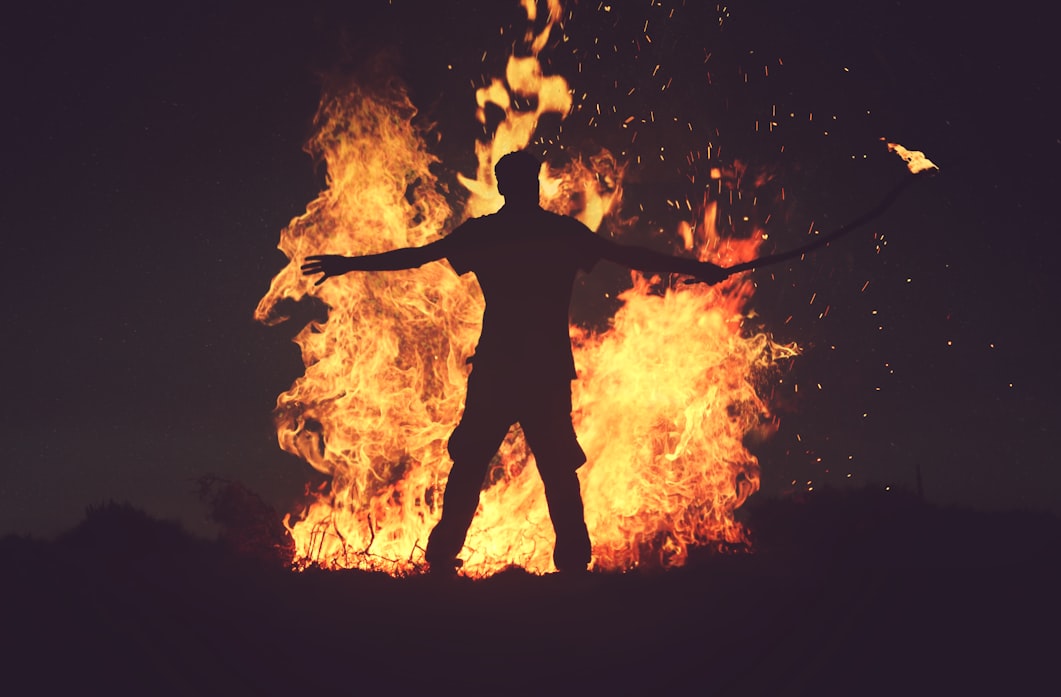
Consider Ahaz, the king of Judah. He’s just heard news that the Syrians and the Israelites of the Northern Kingdom are upset with him and they are coming to do battle. “…the heart of Ahaz and the heart of his people shook as trees”.
Pastor, you’ve heard this one. A group of people are upset. And because they are upset others within your congregation are now upset too. It’s a grease fire that’s threatening to turn your sheep pen into barren earth. “This must be dealt with,” you think to yourself.
Your heart goes into panic mode…
You look at all your resources and notice a bucket of water. That’s all the theological training you’ve received, all your experience, all your know how. You figure that God gave you a brain and calls you to use it. So you take hold of that water bucket and throw it on the situation, and rather than making it better the situation is now worse.
Isaiah 7 speaks to this. God, through the prophet Isaiah, came to Ahaz and told him to trust instead of fear. “Be careful, be quiet, do not fear, and do not let your heart be faint because of these two smoldering stumps of firebrands”.
Smoldering stumps of firebrands. Do you know what that means? It means they are going to go out on their own. They will eventually consume themselves. And isn’t that what tends to happen with angry people? It’s a rule for social media: Don’t feed the trolls! Because you know that feeding the trolls only encourages them. It causes the fire to spread.
Do nothing. Just trust. That’s the counsel.
No need to defend yourself. No need to fall into shrewd political maneuvering. Don’t bother going to Assyria or Egypt for help. Show your trust and confidence in the God of the universe by doing absolutely nothing to put out the wildfire.
If your heart isn’t firm, though, you’ll feed the trolls every time. You’ll feed them because you fear them. You fear the carnage that they can bring about. Their anger and their destructive habits feels like something that you absolutely have to deal with. And panic causes you to act in the moment and out of your own heart and experience.
Contrast this with Hezekiah in Isaiah 37. It’s about the same situation as Ahaz; angry fools making prideful demands. But Hezekiah doesn’t grab water for the grease fire. He lays it all before the Lord. In the eyes of the world and all those clamoring for him to make a Mr. Leader-Man decision it probably seemed as if he was doing nothing. But he did the only right thing to do when your heart is swirling with fear and emotion—he casts his cares upon the Lord.
This is what I’m learning. I’ve battled anxiety for much of my life, and when crisis happen (even manufactured ones) my heart goes into a certain mode of being. I start looking for water buckets to fix what’s in front of me. I try to put out the fire. I try to make leader decisions. And more times than not I’m just throwing water on a grease fire. I make it worse.
I make it worse because in those moments I’m acting out of a position in which the Lord has placed me instead of acting out of an awareness of His presence. And Isaiah 7:9 is also true: “If you are not firm in faith, you will not be firm at all”.
This means that I’m not going to calm the swirling storm inside of me by making some sort of decision. I’m not going to quiet the raging fires by throwing all my “know-how” onto it. It might make me feel better for moments but ultimately it’s going to be worse.
So the first step when a leadership crisis is calling for my attention is to get my heart calmed by the Lord. Until I can trust…until I’m swallowed up by fear of the Lord instead of fear of man…I’m not fit to make a decision. Having this resolve will cause others to think you are a passive or indecisive leader. That’s fine. That’s far better than to actually be a bad leader who throws water on a grease fire.
—
Photo source: here